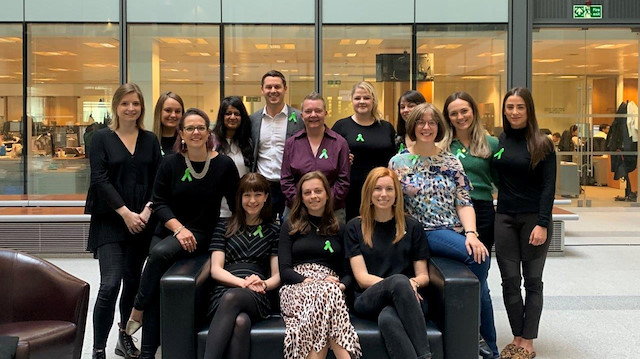
MENTAL HEALTH FIRST AIDERS
One in four people will be affected by mental or neurological disorders at some point in their lives and the annual cost to the global economy is estimated at $1 trillion in lost productivity, according to the World Health Organization.
Brian Heyworth, global head of client strategy at HSBC and chairman of the City Mental Health Alliance, wants his bank and others to help employees before they become seriously ill.
"In an organisation of 235,000 people, some will be having suicidal thoughts but many more will be sliding along the spectrum towards that point. We want to anticipate and prevent that," he said.
HSBC is considering hiring on-site counsellors as part of its 'Healthiest Human System' initiative, the brainchild of CEO John Flint.
JPMorgan's first UK-based on-site counsellor is due to start work at the bank's offices in London's Canary Wharf this summer.
The bank already has full-time counsellors in nine U.S. locations, including New York, Delaware, Chicago and Texas and also offers a Resilience App providing stress management tips.
Goldman Sachs is planning to train dozens of UK staff as mental health first aiders so that they can spot signs that colleagues may be starting to spiral due to stress or anxiety -- including changes in appearance, working habits or social patterns, Robotham said.
Goldman has also launched a paid internship program in the United States for people who identify as 'neurodiverse'. Neurodiversity covers a wide range of neurological differences including autism, dyslexia, developmental disorders and mental health conditions.
As the public profile of mental health grows, employers in Britain who fail to show adequate mental wellbeing provision for staff could be sued under the Management of Health and Safety at Work Regulations Act 1999, which compels employers to assess the nature and scale of health risks at work, including stress.
"The harm and detriment to an employer stemming from these kinds of issues are not solely financial, they can inflict greater damage to reputation, public image, productivity and retention," said Matthew Cole, partner at law firm Prettys.
Cole said he had not seen any significant rise in the number of staff seeking damages from employers due to stress-related conditions but said companies were very sensitive to the risk.
"If an employee ends up with a psychiatric condition which prevents them from working in an environment where they might have otherwise earned six figures, that can amount to some significant liabilities."
Prevention is much cheaper. Britain's Mental Health Foundation estimates that mental health support in the workplace could save UK businesses up to 8 billion pounds a year.
The charity puts the cost of providing information and advice on mental health online and via workshops at around 80 pounds per employee per year.
Heyworth has grappled with anxiety and depression since childhood and was hired by HSBC after a period of leave from Bank of America. He knows that he is one of the lucky ones, both banks knew of his mental health problems and were supportive.
"Make no mistake, we are still in the foothills on this journey," he said.
"The positive thing is that more people are now asking for help, but we also need to accept that there are probably more people who need help too. The next phase of the challenge is creating the conditions where we can reverse that trend."














